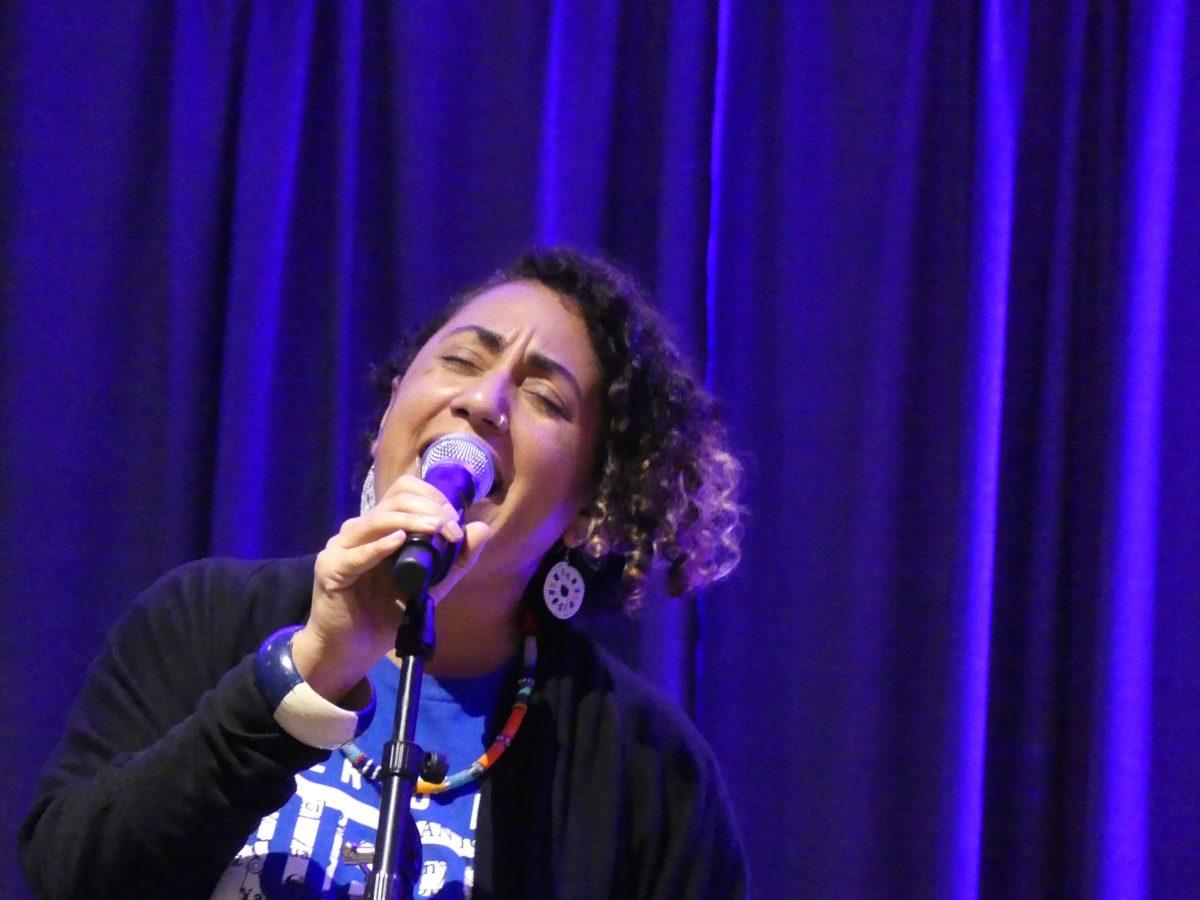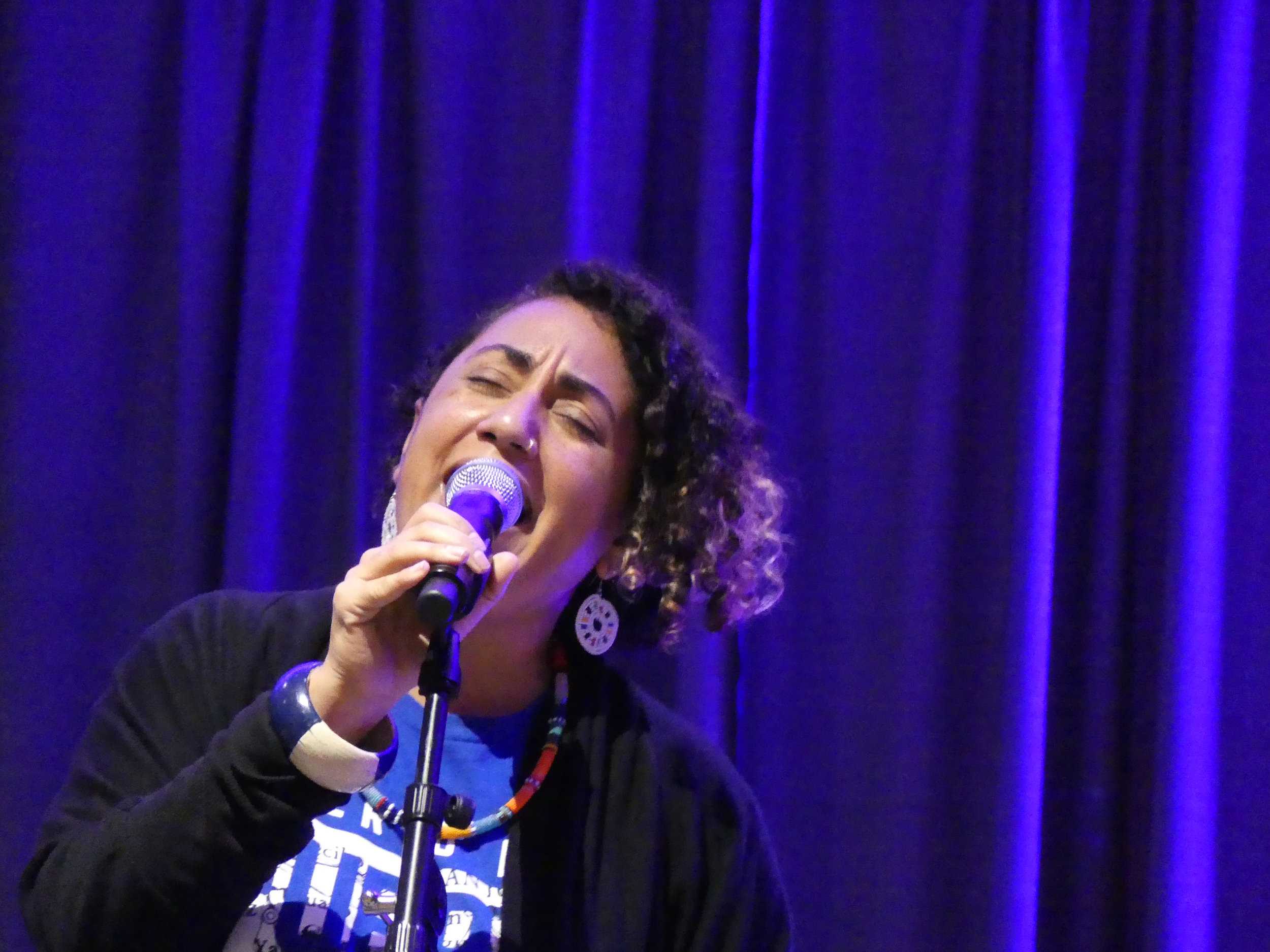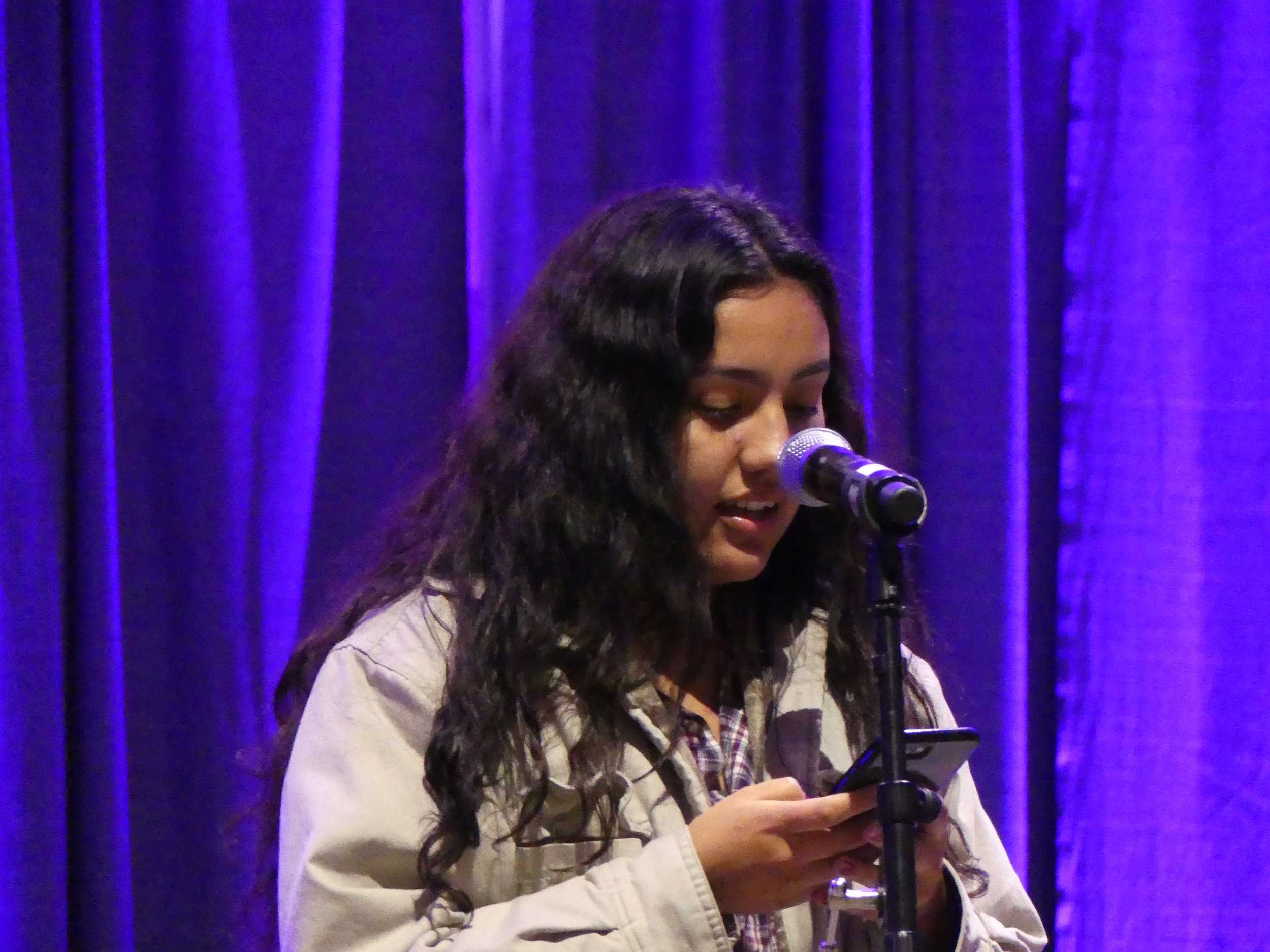Sonoma State University’s Associated Student’s Production presented “We Speak,” an interactive audience performance that addressed a wide array of social, political and personal issues. Held on Nov. 30 in the ballrooms, the purple and warm, complimentary lighting tones encouraged audience members to speak up in a safe space through poems, songs or dances.
“Art is a really powerful healing tool,” said host Taína Asili. A native of Puerto Rico, Asili is a songwriter, frontwoman of the eight-piece Afro-Latin band Taína Asili y la Banda Rebelde, and activist. Asili explained her belief in the importance of speaking your mind, and intends to continuously provide an encouraging environment.
The night began with the performance of “Sofrito,” a Spanish song of Asili’s named after a Puerto Rican sauce and delicacy. Sofrito reminds her of her grandmother and native roots, while also providing a blend of ethnicities and culture. She said singing and dancing lets her “[Singing and dancing] reclaim[s] humanity in the face of inhumanity,” said Asili.
Audience members then volunteered to perform a piece of their own. The first volunteer, Rosie Zuniga, read a poem about her brother-in-law’s passing. “I really like to remember to tell people you love them,” said Zuniga. She spoke about missing him and the importance of living life fully around people you love.
Freshman Grey Todd played two of his original compositions titled, “Pray for Me,” and “Starlight in the Entropy.”
“I write music as a form of therapy,” said Todd, who played acoustically, providing sultry melodies.
Crystal Soto, a senior attending Santa Rosa Junior College, rhythmically read a poem about being judged by the color of her skin. “It’s like a merry-go-round to push us down when we try to get up,” said Soto.
Asili finished the performance with two more of her original songs. The first about political activism and speaking your mind in times of trouble, and the second about loving each other and trying to get along with others.
By the end, Asili left the performance with something for the audience to ponder, “How do we come together for a common purpose of love and justice?”





































